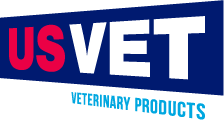Storage & Care Tips for Excess Vet Supplies and Meds

As a farmer or rancher, ensuring the health and well-being of your livestock is crucial to the success of your agricultural business. Veterinary supplies and medicine play a vital role in maintaining the health of your animals, but what do you do when you have excess supplies on hand? Read on to discover tips for caring for and storing excess veterinary supplies and medicine to keep most of your investment intact and have the supplies on hand you need when you need them. You’ll learn about how proper storage methods, such as refrigeration and locked cabinets, can help you save money in the long run. Additionally, you’ll dive into whether it is worth investing in bulk veterinary supplies and how a reliable veterinary supplier can make operating your agricultural business or feedlot easier and safer.
Proper Storage is Essential
When it comes to caring for excess veterinary supplies and medicine, proper storage is key because without it, inventory can become lost or otherwise unaccounted for, or worse, expire or be spoiled, which makes it unsafe for use. Many medications and vaccines require refrigeration to maintain their effectiveness. Investing in a dedicated medical refrigerator or cooler can help ensure that your supplies remain potent and ready for use when needed. Furthermore, storing these items in a locked cabinet or secure area can prevent theft or unauthorized access, reducing the risk of misuse or tampering.
Excess Storage Saves Time and Money
Organizing your veterinary supplies can also help save you time and money. By keeping an inventory of your supplies and rotating stock regularly, you can avoid overordering or letting medications expire before use. You also save yourself money in keeping animal losses at bay caused by injury, illness, or exposure by having prompt treatment ready to go. This not only saves you from wasting valuable resources but also ensures that you always have the necessary supplies on hand when an emergency arises.
What to Consider When Buying in Bulk
When considering whether to invest in veterinary supplies in bulk, there are several factors to take into account, especially if you’re trying to budget for veterinary supplies responsibly. While purchasing larger quantities may offer cost savings upfront, it is important to consider shelf life limitations and storage requirements. It’s also valuable to consider the accessibility of some medications and supplies when thinking about what to buy in bulk and what to buy on an as-needed basis. Some medications have a limited shelf life once opened or may degrade more quickly if not stored properly. Consulting with a veterinary supplier can help you determine which items are suitable for bulk purchasing based on usage rates and storage capabilities.
How a Veterinary Supplier Is Beneficial to Your Agricultural Business
An experienced veterinary supplier can be a valuable partner in managing your agricultural business or feedlot efficiently by providing access to a wide range of quality products at competitive prices. A reputable supplier can help streamline your ordering process and ensure that you have the necessary supplies on hand when needed. Additionally, many suppliers offer convenient delivery options, saving you time and hassle by eliminating the need to pick up orders yourself. Some veterinary supplies can even be placed on a recurring automatic order for added convenience.
Caring for and storing excess veterinary supplies and medicine is essential for maintaining the health of your livestock while also saving you time and money in the long run. By investing in proper storage methods such as refrigeration and secure cabinets, organizing your inventory effectively, considering bulk purchasing options wisely, and partnering with a reliable veterinary supplier, you can ensure that your agricultural business operates smoothly and safely. Remember that prioritizing the care of your veterinary supplies ultimately benefits both your animals’ well-being and your bottom line. Call US VETTM to learn more.



